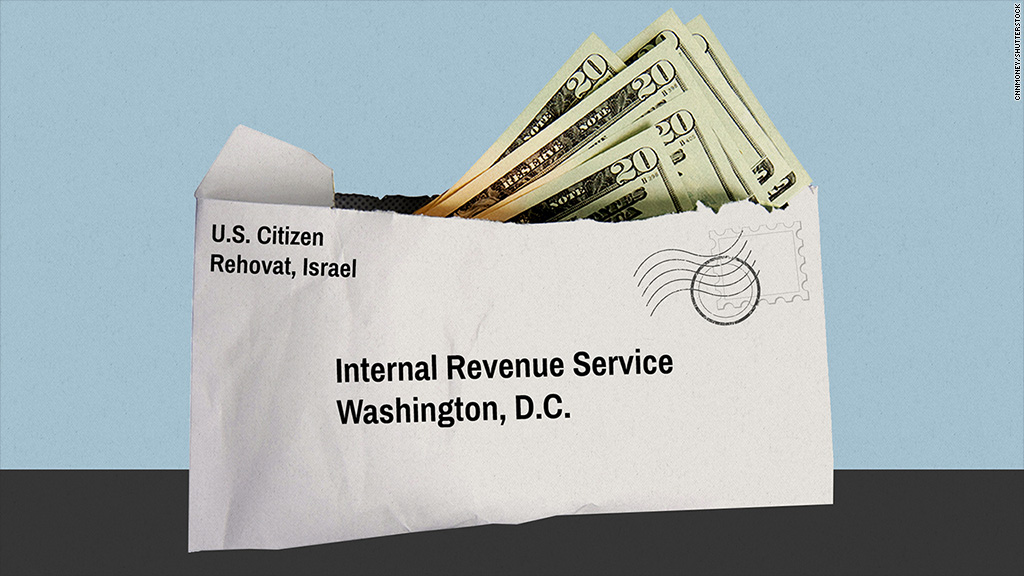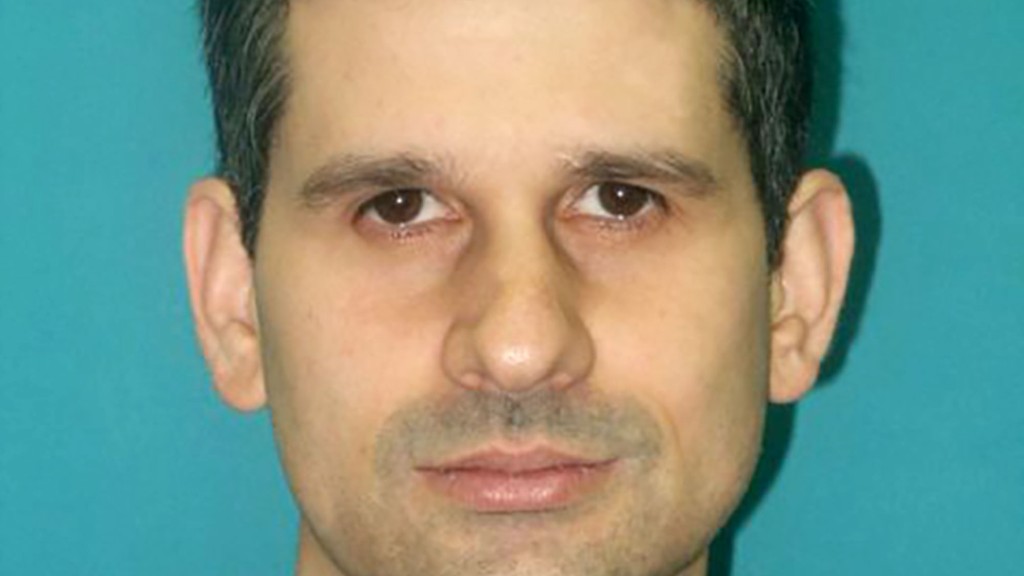
He left America at the age of seven, has never earned a penny there, but might owe the U.S. government $6,000 in taxes.
Meet Elad Shahar, who was born in 1969 to Israeli parents in New York when his father was posted there for work.
Anybody born on U.S. soil -- or to one American parent anywhere in the world -- is automatically a U.S. citizen, and therefore must file and pay taxes no matter where they live or work.
Shahar, like other "accidental Americans," was shocked to discover recently that he was on the hook for back taxes, and may have to pay fines.
"[I am] incredibly frustrated and in disbelief," he told CNNMoney. "It takes time to realize that yeah, this is what is actually happening."
Shahar, who speaks with an Israeli accent and "doesn't feel American," is now figuring out how to pay his taxes.
He wants to renounce his U.S. citizenship -- like a record 3,000 Americans last year -- but needs a clean record with the Internal Revenue Service first.
Related: Giving up your U.S. passport? It's going to cost you
"From an international perspective, the world is split into two halves -- the people who are desperate to get U.S. citizenship, and the people who are desperate to give it up," said Chris McLemore, senior counsel at Butler Snow.

The U.S. offers a fast track program for people like Shahar to file their taxes, but it's still a complicated process that often means extra accountant fees, and could end in a big bill.
The other option is to do nothing and hope Uncle Sam never comes knocking. London mayor Boris Johnson -- who left the U.S. when he was five -- is a famous refusenik. He said it was "absolutely outrageous" that he should be asked to pay U.S. tax on the sale of his London home.
But holding out can make it difficult to travel to the U.S. for education, work or vacation, said David McKeegan of Greenback Expat Tax Services.
Related: Why I gave up my U.S. citizenship
A new U.S. law called the Foreign Account Tax Compliance Act adds a new risk. The law aims to stamp out tax evasion by requiring global financial firms to report American-owned accounts.
"FATCA really magnified the problem -- some of my clients [used to] say, 'I'm going to keep my head in the sand,' " said McLemore. "But we tell them now, with FATCA, there is no more sand."
For Shahar, dealing with his American citizenship has been a pain. At one point, his bank in Israel even threatened to close his accounts. Many banks around the world have dumped U.S. customers rather than wrestle with FATCA.
And paying his taxes has become a nightmare. First, he couldn't file his papers, because he had never been assigned a social security number.
Then to get one, he had to submit his education records and job history to prove he was abroad.
"This is absurd," Shahar said. "On the one hand, I want to renounce; on the other hand, I'm required to enter even more into the system to prove that I am a U.S. citizen."
